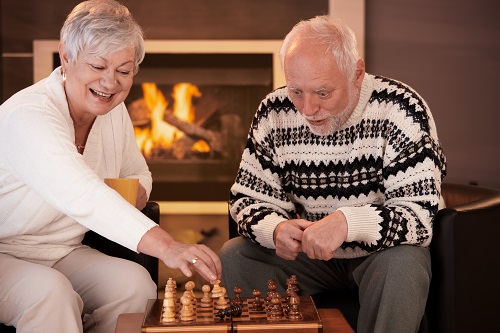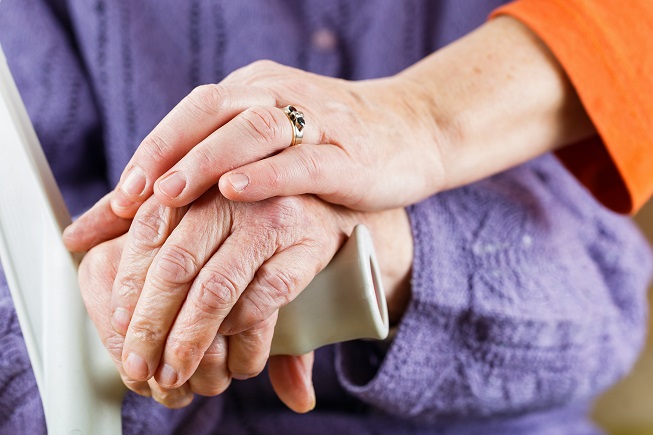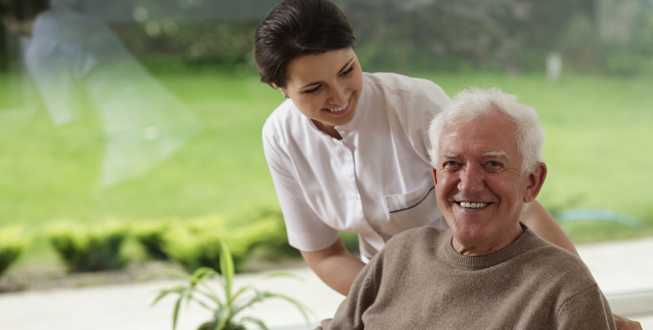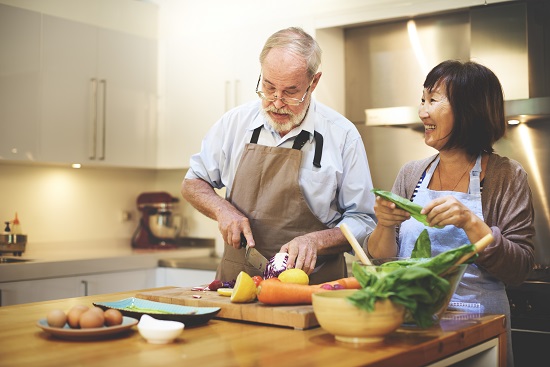Why the Elderly Get Sick During the Winter and How to Stay Healthy

When the weather starts to cool down, it’s not unusual to see people getting sick but among all of us, the elderly (and very young children) are especially vulnerable during the winter months. But what are the health issues seniors and caregivers should look out for, and how can we prevent them?
Health warnings for the elderly during the winter
Perhaps the most common problem people will encounter during the winter is reduced body temperature. Once environmental temperature drops, exposure to cold and hypothermia are a possibility. The problem with this is that older individuals are less able to regulate their body temperature than younger folks, and because they’re likely to be inactive and indoors, they’re not necessarily going to be dressed warmly.
An increased number of falls by older adults have also been observed to be closely related to the cold weather, especially those who live in areas where winters have snow and ice. Of course, people of any age will have trouble walking on ice or snow, but for seniors, especially those who suffer from arthritis, diabetes, and circulation issues, sensation in their feet may be decreased thus making it harder to balance. Additionally, decreased in muscle strength and flexibility may contribute to the risk of falling.
Unfortunately, too, despite how much fun visits from their grandchildren can be, grandparents may find themselves prone to sickness when exposed to sick kids. Unlike the children’s parents who are always with their kids and therefore get exposed to the illness as it is developing, grandparents aren’t as micro-immunised so they usually catch the sickness at its prime. This isn’t helped by the fact that the elderly tend to have weaker immune systems and pre-existing conditions, so once they catch their grandkids’ flu or cold, they might be out sick for a far longer time. In fact, because most people get sick during the winter, seniors may find themselves at risk for a number of community-acquired diseases like bacterial pneumonia, the flu, norovirus, and coughs.
On the other side of the spectrum from communicable diseases, there are some concerns that come with older individuals being isolated by the cold weather. Because they’re likely to want to stay inside, some seniors who live alone might be risking their physical and mental health at risk. On the one hand, they might not be able to perform certain tasks as well as they should, such as heating the home, preparing food, or dressing warmly. On the other, not seeing other people can make them lonely and isolated, which is bad for their well-being. Depression and dementia are mental health problems that come with winter, but they also have an effect on the elderly’s physical health.
How to help keep the elderly well during the cold seasons
To decrease the risk of health problems relating to the winter seasons, it’s imperative to make sure that your elderly loved ones are safe. Keeping the house comfortably warm and making sure that they’re always dressed appropriately for the weather is a great way to start. In case of signs of hypothermia, go to the hospital immediately!
To prevent falls, during the winter and beyond, installing rails in critical areas like front steps and bathrooms can help a lot. Slip-proof shoes and boots that are easy-to-wear will also lower the chances of falling. If you’re from Tasmania and the Austrailan Capital Territory, the Red Cross can also equip your elderly family member with a personal alarm system (read about it here: https://www.redcross.org.au/get-help/community-services/personal-alarms) so they can immediately contact the Red Cross during emergencies like when they fall when they’re alone.
It’s also imperative to stock up on Vitamin C, and simple remedies for colds, coughs, stomach pains, and allergies, and have a first aid kit at home. Having these will come in handy, especially since these are some of the most common illnesses that come with the winter. Have them see a doctor to get a flu shot (you can have it done annually) too. Another way to prevent some viruses? Use anti-bacterial hand sanitizer.
Your loved one should also be eating and drinking properly. If your loved one lives alone, make it a point to ensure proper nutrition and hydration and that they’re regular meals. You can help with meal preparation but there are senior care services that can also provide the same, such as Meals on Wheels.
Finally, make sure that your elderly loved one isn’t lonely. Believe it or not, a visit, if not a daily phone call can go a long way to improve their well-being. If you’re not able to visit often, you can arrange for friends, neighbors, or community volunteers to come in to make sure that the senior is doing okay.





 Community Service and its Role in Improving Quality of Life for the Elderly and Disabled
Community Service and its Role in Improving Quality of Life for the Elderly and Disabled
 Helping the Elderly Adapt to Technology
Helping the Elderly Adapt to Technology
 Lessons from the NSW Government’s “April Falls Day” 2018
Lessons from the NSW Government’s “April Falls Day” 2018